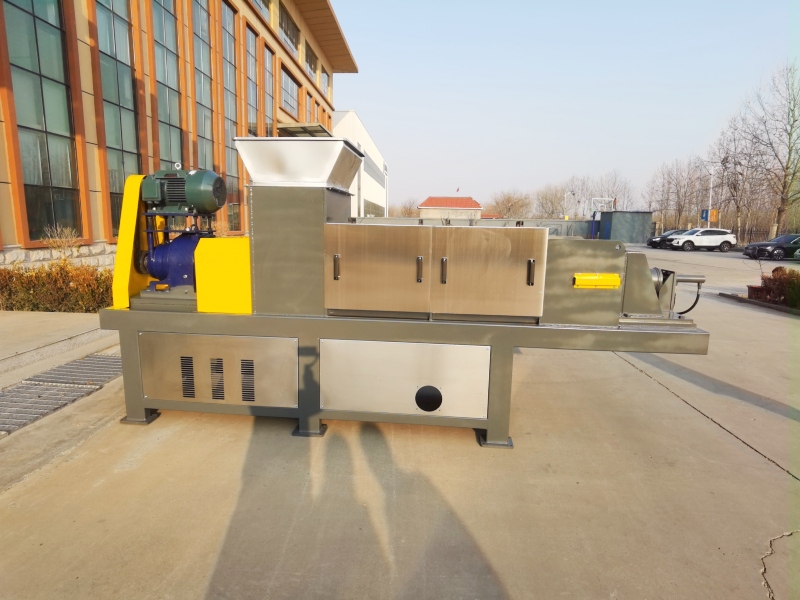
Food waste management is a critical issue faced by communities and industries worldwide. Food waste dewatering machines have emerged as innovative solutions to tackle this problem. These machines are designed to efficiently remove moisture from food waste, making it easier to handle and transport. In this article, we explore the diverse applications of food waste dewatering machines across different sectors.
**1. ** Hospitality Industry
Restaurants, hotels, and catering services generate a significant amount of food waste daily. Food waste dewatering machines help these establishments reduce the volume of waste, allowing for easier disposal and minimizing the environmental impact. The dewatered waste can also be converted into compost or bioenergy.
**2. ** Food Processing Plants
Food processing industries produce a large quantity of organic waste during various stages of production. Dewatering machines efficiently separate the water content, leaving behind solid organic waste. This dried waste can be used as animal feed, reducing the need for landfills and promoting sustainable practices.
**3. ** Municipal Waste Management
Municipalities are increasingly adopting food waste dewatering machines as part of their waste management programs. By reducing the volume of food waste, these machines decrease transportation costs and landfill usage. The resulting dry waste can be utilized for biogas production, contributing to renewable energy sources.
**4. ** Educational Institutions
Schools, colleges, and universities often have cafeterias that generate substantial food waste. Food waste dewatering machines enable these institutions to manage their organic waste efficiently. The dewatered waste can be composted on-site, creating a closed-loop system that educates students about sustainable practices.
**5. ** Agricultural Sector
Food waste dewatering machines play a role in agricultural practices by processing leftover fruits, vegetables, and organic materials. The resulting dry waste can be mixed with soil to enhance its fertility, promoting healthier crop growth. Additionally, farmers can use dewatered waste as organic fertilizer, reducing the reliance on chemical alternatives.
Conclusion
Food waste dewatering machines offer versatile solutions to the growing problem of food waste. By finding applications in various sectors such as hospitality, food processing, municipal waste management, educational institutions, and agriculture, these machines contribute significantly to sustainable waste management practices. As technology advances, the widespread adoption of food waste dewatering machines promises a more eco-friendly future by reducing the environmental impact of food waste disposal.




If your company wants to establish a business relationship with us, please briefly describe the cooperation intention and send an email to:chuantaiscrewpress@gmail.com























































































![[list:title]](/static/upload/image/20240528/1716877114510915.jpg)